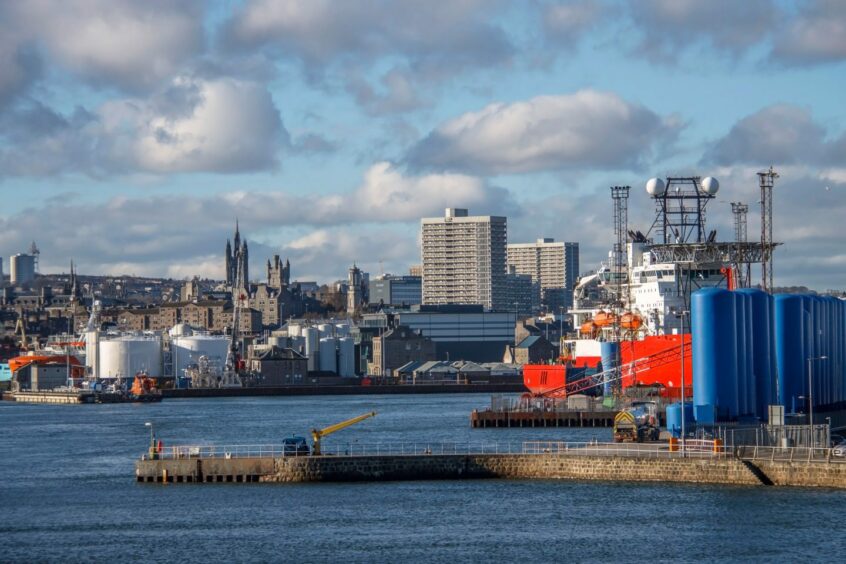
The windfall tax on the North Sea energy sector remains a key concern for north-east businesses ahead of this month’s budget, according to a survey.
Aberdeen & Grampian Chamber of Commerce’s (AGCC) latest quarterly economic survey found that 61% of companies claim taxation is a barrier to growth, compared to 48% three months ago.
It comes as the North Sea oil and gas sector braces itself ahead of the Labour government’s much-awaited Autumn Budget on 30 October.
Chancellor Rachel Reeves has confirmed plans to increase the tax rate of the Energy Profits Levy (EPL) and remove “unjustifiably generous” investment allowances.
The UK oil and gas sector has warned it will “hasten the demise” of the North Sea, amid warnings of the potential for thousands of job losses.
Windfall tax uncertainty
With much of Aberdeen’s economy dependent on the energy sector, AGCC chief executive Russell Borthwick said the fiscal uncertainty has put seemingly put businesses in a “holding pattern”.
“Although less than a fifth of responses to the survey were from companies in the energy sector, it’s apparent that the huge uncertainties facing the future of oil and gas operations in the North Sea are having a knock-on effect on confidence in the wider north-east economy,” Borthwick said.
“The Chamber has been very clear in its warnings to the new government about the catastrophic economic and jobs impact of its intended taxation policy towards the North Sea.
“The north-east results of the Q3 survey suggest this is a spectre that looms large.”
The AGCC report shows future sales pipeline, turnover and profit forecasts are all “increasingly pessimistic” and “significantly worse” than elsewhere in the UK, he added.
Alongside tax concerns, the report also showed challenges surrounding staff recruitment, prince inflation and lagging domestic sales growth.
GB Energy boost
However, Borthwick said the Chamber recognised there has been “some positive news for our region” since the closing of the survey.
He pointed to confirmation from the Labour government that the headquarters for its flagship GB Energy will be in Aberdeen, as well as “exciting new clean energy projects”.
“But this will only be good news if we don’t prematurely end North Sea oil and gas as a viable industry,” Borthwick said.
“That will not ensure the fabled ‘just transition’ and will risk a repeat of what happened to mining communities in the 80s with the livelihoods of thousands of working people here and in places across the UK cut off with huge impacts on extended supply chains that depend on this disposable income through their tills.”
He said the Chamber wants “governments at all levels” to listen to the concerns of businesses in the region surrounding the policy.
Labour talks up Scotland investment
The AGCC survey comes after UK energy secretary Ed Miliband and GB Energy chair Juergen Maier visited Aberdeen, talking up government support for Scotland’s renewable energy sector.
The UK and Scottish governments also signed an agreement focused on partnerships with Scottish public bodies in the clean energy sector.
Miliband also reiterated the government’s pledge to deliver the long-delayed offshore skills passport, which aims to make it easier for oil and gas workers to transition to renewable energy jobs.
During the visit, the energy secretary also denied the Labour government had “snubbed” a major carbon capture project in Aberdeenshire.
Speaking to the Press and Journal, Miliband insisted his government would ensure a “just and stable transition in the North Sea”.
“We know the North Sea faces big challenges but we are determined to work with industry to keep existing fields open for their lifetime,” he said.
“And to ensure we create alternative jobs in the clean energy sector at speed. We believe we can do that and determined to work with industry to make that happen.”

 © Image: Aberdeen and Grampian Chamber of Commerce
© Image: Aberdeen and Grampian Chamber of Commerce © Shutterstock
© Shutterstock © DC Thomson
© DC Thomson